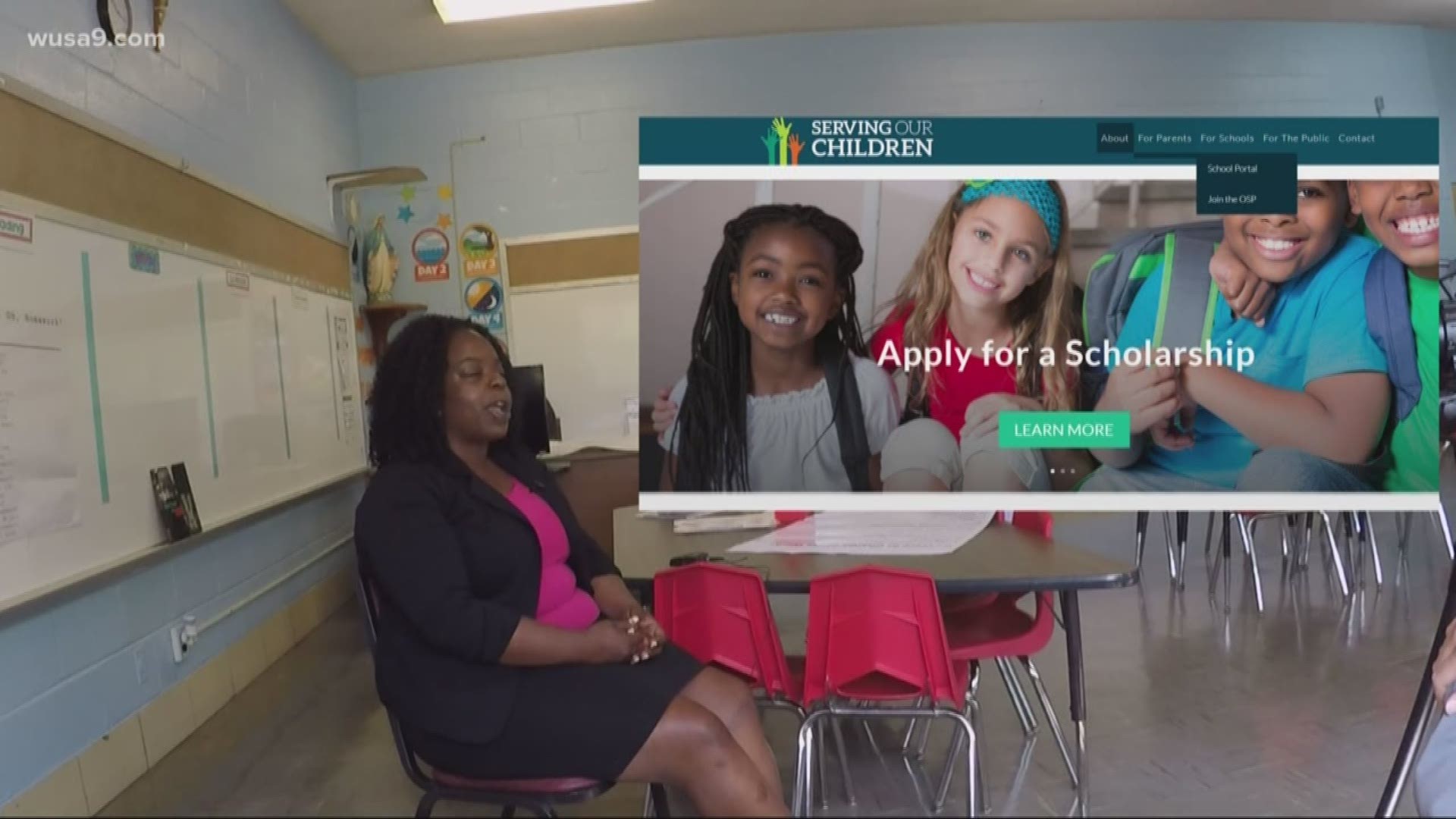WASHINGTON — What would you do to give your child the education you think they deserve? In D.C. technically there is a choice. A program in the District offers low income families vouchers to send their children to private schools.
But, as it goes with most school voucher programs, it has drawn controversy. WUSA9 looked at the state of the program 15 years after it was started.
We started out in Southeast at St. Thomas More Catholic School. Inside a small classroom, is where you’ll find Nikisha Thompson. She is a passionate, mother of four who has one thing on her mind when it comes to their future.
“The only weapon I can give my kids is a proper education,” she started.
Thompson sees education as the only way to the future.
“I shopped around with D.C. public schools to see if they could get a public education but unfortunately, they were not to my standard,” she said.
Thompson lives not far from St. Thomas More. With her income she can’t afford any other education for her children.
That changed 15 years ago. She applied to DC’s Opportunity Scholarship Program. It gives parents vouchers to send their children to a private school.
Since then all four of Thompson’s kids have started in St. Thomas More before moving onto private high schools.
“The program has been a milestone for us because were able to get the quality education,” she smiled.
That’s the kind of story Rachel Sotsky, the head of the OSP, wants to hear.
“I believe that low income families should have the same opportunities as high-income families,” she said.
Sotsky explained the way DC does vouchers isn’t like any other program. There are roughly 1,600 kids enrolled in the program in 2019. It doesn’t take funds from public schools and its paid for by Congress.
“The legislation has always required an independent investigation,” she explained.
This is where the controversy comes in. Studies found that students in the voucher program didn’t always test better than students not in it.
However, the same studies found the voucher program students were less likely to skip school. To add onto the big point for Nikisha Thompson, voucher students are 20% more likely to graduate.
When Rachel Sotsky talks about the program, she points to the success of what voucher students do in the future; not just test scores.
“In the long run that is what will lead to greater success,” Sotsky said.
That is the dream realized for Nikisha Thompson because last year her first son graduated from Gonzaga high school and is headed to college
“I am dropping him off on Friday in Massachusetts,” she said. “I’m proud, I’m amazed.”

